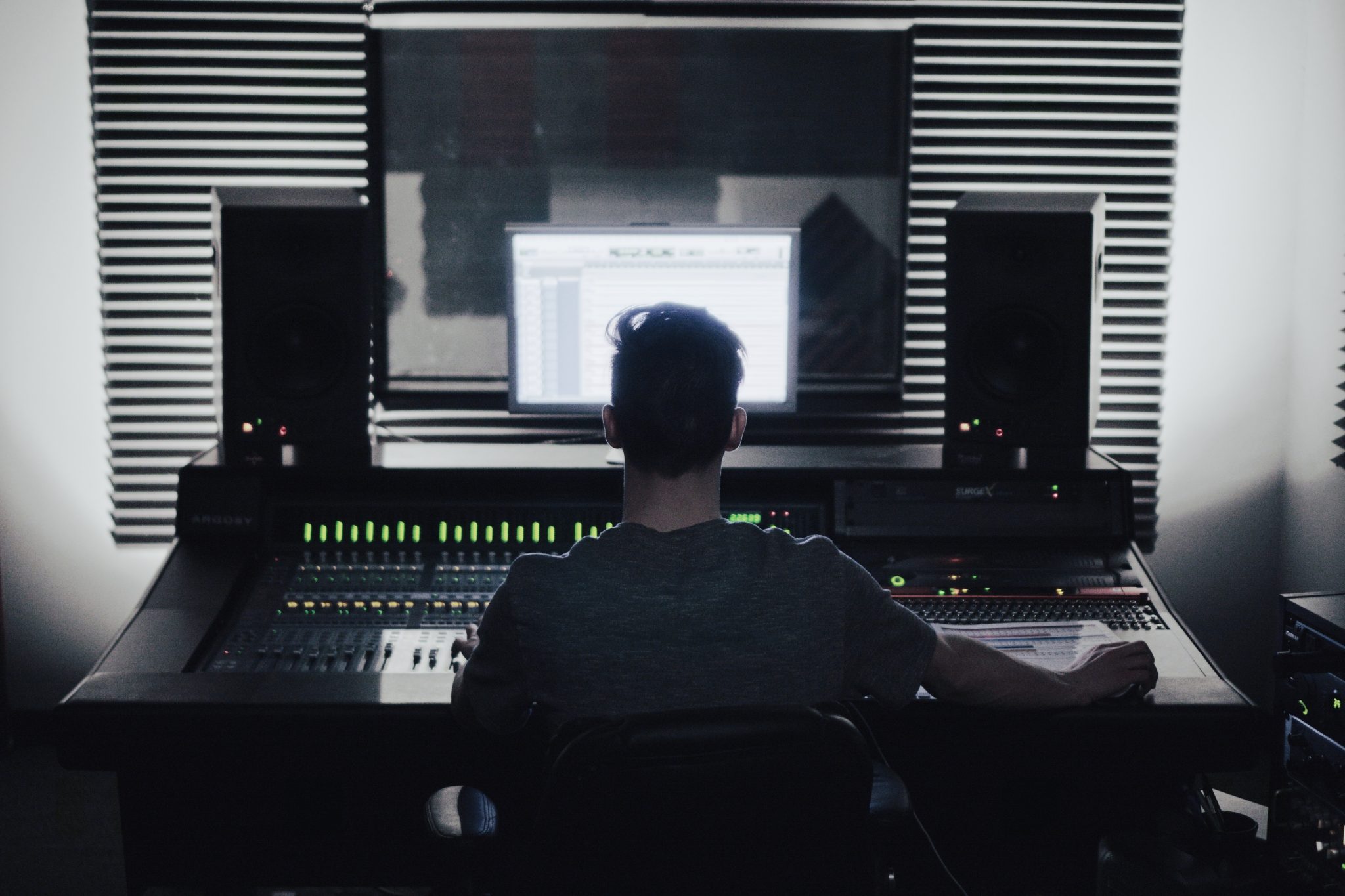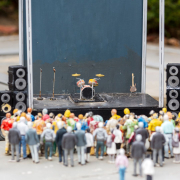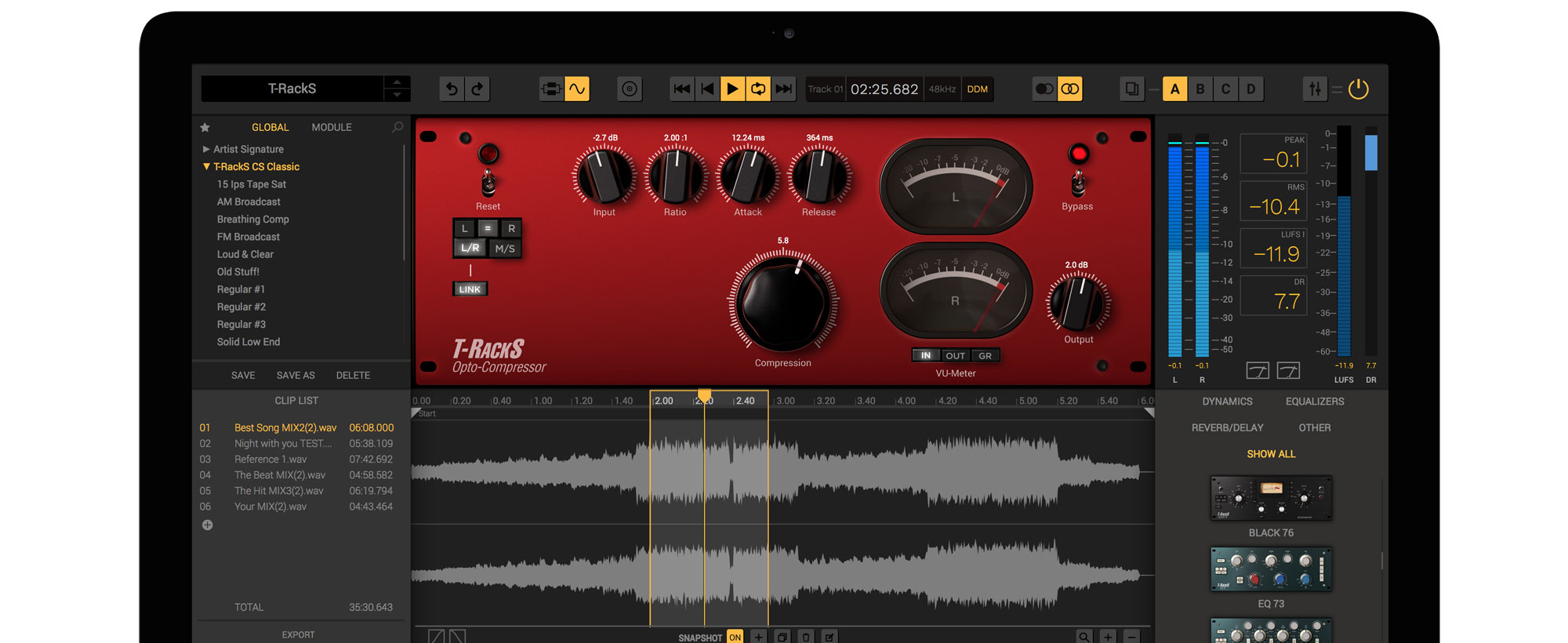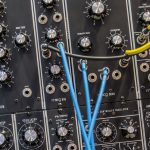Why should you make music?
Why make music?
This simple question might seem like it has an easy answer, but when I was asked recently why I make music, I realized that the more I started thinking about it, the more complex the answer became. Today it can feel like everything in the modern world works against musicians, but the more I think about it, the more I think that this isn’t exactly true. Let me explain:
You might not be aware of this, but between the 1930s and 1970s in the US Baseball was a very important part of national culture and identity. During this time, the inclusion of immigrants in the sport was quite important—Jackie Robinson was the first African-American to play American baseball professionally, which helped to promote the inclusion of the African-American community in professional sports in the US at that time. Baseball wasn’t the only thing promoting the inclusion of immigrants and minorities in the national culture, but it definitely played a role (I recommend Ken Burns’ baseball series if you’re interested in this topic).
We can see the same sort of trend in the history of music. The countless occurrences of music becoming a part of politics are too numerous to describe in detail here, but electronic music specifically had its popularity grow due in part to its early adoption by gay communities—same with disco. Even nowadays, Montreal’s MUTEK festival is playing a similar role—forcing gender equity in the artist lineup and giving artists a platform to express themselves safely, no matter what their gender or orientation. Music is a platform for self-expression and provides artists with a chance to share their own personal views. MUTEK’s early vision was to create a space for artists to share the fruit of technological research in music and present it as an art form beyond trends, movements, etc., but over time it became clear that personal touches were also quite essential to the festival.
So, when I was asked “why do you make music?”, some of the points I have just explained came to mind, but I also paused and thought about my own inner motivation(s) and how they have evolved over the years.
I think that for me, every 5 years the purpose of making music has changed directions; my motivations were originally very goal-driven. This is something I see a lot with people I work with—their inner motive for making music is directly linked to where they want to go next. For young artists examining the careers of older ones, the point of making music and how it changes over time is a worthy discussion to have.
Based on my understanding and experience, there are common goals that unite many artists and might help to answer the question “why should you make music?” (the answers to this question I’ve compiled below are not in any specific order).
To learn a skill or to have a hobby
My earliest interest in music was in the early 80s, but back then it was nearly impossible to make electronic music. Music lessons felt boring and pointless, but DJing music for break-dancing was pretty dope. However, learning to be a DJ while living outside of Montreal at that time was pretty much impossible. Presently, I often have people ask me if I could teach them to DJ because they’d love to do it for fun for friends, but I refer them to YouTube as it is quicker and cheaper. Many people with this motivation are simply into the idea of assembling music and playing it. DJing music is quite fun and a great hobby that you can do with friends. After you start doing it for a while, the point of DJing might shift from just doing it to entertain some friends towards connecting with other DJs, or sharing demos on Soundcloud and aspiring to play in front of a crowd. The “why DJ?” becomes purely related to the attraction of doing it. It’s rare to see people really asking themselves “why”, but I remember when I was starting to DJ that I had close friends and family asking why they should take my hobby seriously. I was really into theatre back then, and to people close to me the idea of being a DJ seemed silly.
Regardless of your original motivations to start messing around with music-making, making music as a hobby is really fun—it’s a wonderful creative outlet and can even be useful with friends when you have evenings together and everyone wants to be entertained.
To establish yourself as a part of a community
A sense of community comes for most after they’ve started DJing, but many people also start here. What’s interesting about music is it can be a side-project throughout your entire life. Going from one community to another is also not uncommon. I was really into raves in the early 90s and wanted to contribute to that scene by playing music I thought was suitable for that community, but over time my music tastes changed. My circle of friends changed a few times as my passion for what I loved (music) created some distance around people, but music has always been there in the background.
Having music as the centre of your life gives life purpose in-itself, as well as creates a lifestyle around it—there’s no good or bad way to approach this. I know some jazz and classical musicians that have so much devotion to their craft that it would make anyone I know from the electronic scene blush. Is making music the centre of your life to that degree better? These devoted musicians aren’t necessarily happier in the end, but what music gives them personally is the most important reason why they make and/or perform it and a very valuable and satisfying part of their lives.
The tricky part of motivation is that sometimes you might never really feel like you’ve reached your end goal. Being part of a community, for example, is hard to quantify and depends on the feedback you’re getting. This type of internal/external motivation loop is where a lot of people struggle and get lost. It’s common to see people who are under the impression that it would be better to abandon everything and sell all their music related toys than to keep trying to reach their goal. Is there a way to avoid this thought? Why do people slip into negativity all of a sudden and react drastically?
Say you’ve tried to sustain a music “career” or project for years and it never really went as far as you wanted it to—it’s easy to pin the problem on a lack of recognition from others. Same goes for an artist who has been around a long time and has “done everything” and then gets lost when thinking about what to do next. Sometimes your music community might change directions drastically if they reach that point—a lot of my peers switched to making house music at one point—which can also make you feel lost yourself. When you feel lost or tired of trying with music, it really has nothing to do with other people, but more with your personal approach to music. This might sound cliché, but it’s true.
Personally, I have been experimenting with my approach to music quite a lot; I find a lot of relief by focusing on people who care and appreciate what I do. Building your own community or small circle of music friends has been for me the only thing that can get me back on track when I feel lost. I lost my patience after chasing others for years and decided to shift my energy towards those who cared instead—and I didn’t have to search very far.
To make a career out of music
Once people feel included in a music community, the next logical goal is to try to “make it” on a professional level. This can mean many things:
A career for self-expression and self-realization
One of the most important needs of humans is to feel they’re able grow and to have others (and themselves) witness it. If you’re pushing yourself making music, you’ll see and hear the growth of your music yourself, and with time and patience the quality will get better which provides great feelings of satisfaction, especially when it’s turned into a career.
A community-driven career
As I’ve covered in multiple past posts, one can be attracted by a community of artists or genres and want to join their movement. The beauty of this approach is connecting socially over electronic music, which can create opportunities for many conversations and projects, technical, philosophical, or otherwise.
You can also do music for multiple reasons and those reasons can morph through time, through life changing events or simply because your interests are shifting. I come to question myself every now and then. Asking yourself this question also helps you understand where to go next. One of the reason why the base of this question is more relevant than what we think of.












Leave a Reply
Want to join the discussion?Feel free to contribute!